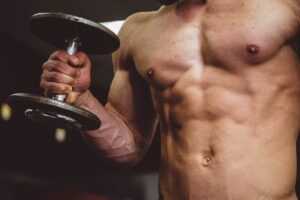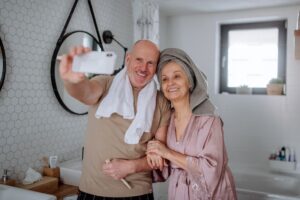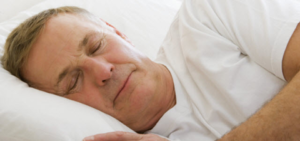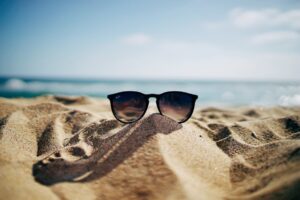This was the date that being asked how old you are changed forever – why?
A group of scientists have revealed the results of the first DNA tests that show humans have a traditional chronological age and a potentially more fluid “biological age” – and these are usually different.
A decade of research has shown that people with an older DNA age, known more correctly as an “epigenetic age”, do indeed seem to be older biologically, and tend to get ill and die sooner than others.
This latest scientific discovery demonstrates what many of us have believed all along: people age at different rates. Biologically, it is now understood many of the underlying cellular and molecular processes that drive ageing, from damage to the proteins that keep our bodies working, to the ageing of cells themselves.
It’s these changes – known collectively as the “hallmarks” of ageing – that are behind wrinkles, grey hair, frailty, memory loss and diseases like cancer, heart disease and dementia, of all of which become radically more likely as people age.
If humans could slow these “hallmarks” down, whether by a healthier lifestyle or through medical treatments, not yet available, it may be possible to reduce the risk of many or even all the signs of old age at the same time.
How can you measure your biological age?

An epigenetic age test costs money and results have been shown to be inconsistent. Try these completely free measurements in your own home to get a rough idea.
The first is just to look in the mirror and check how old you look. The main image is of a Tik Tok user Chris Bautista, whose video has seven million views. Basically, he shows how millennials look like by using his 37-year-old self as an example against other “30-somethings” from our youth.
Al Bundy was 39 years old in Married… with Children; George Costanza was aged 31 in Seinfeld; and the entire cast of Cheers was meant to be aged in their twenties and thirties.
Physical measurements can be tested too. How fast you can walk 10 metres provides a gauge (with speed dropping from 1.4m/second in those below 50 to less than 1m/second in the over-80s). Or try standing on one leg (under-40s can typically manage 45 seconds with their eyes open or 15 with their eyes closed, and that drops to 32 and 4 seconds respectively in 60 to 69-year-olds).
Rate of ageing isn’t simply determined by genes. Scientific studies suggest somewhere between 75% and 95% of lifespan is down to lifestyle and luck. So, what can you do to improve your ‘luck’?
Maintain your muscle

150 minutes of moderate activity (such as brisk walking), or 75 minutes of vigorous exercise, per week, is recommended. Resistance exercise can help preserve both bone density and muscle mass, which are important as people age, for a variety of reasons. Muscle even helps to regulate your blood sugar levels after meals, which people’s bodies often get worse at as they age.
People lose roughly 5% of muscle and 10% of strength every decade after the age of 30. Resistance exercise can delay or even reverse this decline. Plenty of exercises can be done at home using your bodyweight, from press-ups to squats. It’s never too late to start.
Healthy eating

Less meat and more vegetables, fruit, legumes, nuts, and whole grains are the key.
Maintaining a healthy weight is also important for longevity.
Brush your teeth

A surprising connection with ageing biology is that between good oral hygiene and living longer. Health-conscious people, who brush their teeth, floss, and eat well tend not to suffer from chronic inflammation. Inflammation, a normal immune response to an infection or injury, is usually short-lived. However, as people age, their immune systems enter a state of constant low alert – inflammation that’s chronic – and scientists think this can accelerate the ageing process.
A never-ending battle with bacteria on teeth or gums provides a source of exactly this kind of low-grade and long-lasting inflammation, providing a mechanism by which the cleanliness of your teeth is connected to general health.
Sleep

The sweet spot for sleep is around 7-8 hours per night on average. However, if a person is regularly getting over nine hours of shuteye a night, it is associated with a higher risk of death than getting as little as four hours.
There are a variety of possible causes: it could be that people who are unwell in other ways are more tired and sleep for longer. Or more time in bed changing immune system behaviour for the worse.
Longevity science is uncovering mechanisms to explain how a good slumber can lengthen lifespan. For example, while we sleep, a human’s brain does a spring-clean, literally flushing out toxins, like the amyloid deposits associated with Alzheimer’s Disease, via a recently discovered network of pipes in our skulls, known as the glymphatic system.
Given that the accumulation of toxic proteins is one of the hallmarks of ageing, this could slow down brain ageing.
Wear sunglasses

Looking after your eyes is important with the effects of shielding them could include preventing dementia because the damage that can be done by ultraviolet light has consequences that stretch beyond vision loss.
For example, the proteins in the lenses of a person’s eyes are normally transparent, but UV damage may cause clouding and yellowing, which, if it gets severe enough, is known as a cataract.
UV light can also do damage to the light-sensitive cells on the back of the eye, accelerating the disease, age-related macular degeneration (AMD), which can blur a person’s vision. Both cataracts and AMD seem to increase the risk of dementia. A theory is that by cloudiness or blurriness reducing the amount of visual stimulation received by the brain, cognitive decline with ageing accelerates, so protecting your eyes from UV light can slow down these processes and, in turn, could well reduce dementia risk.
Sunscreen is your best friend

By far the most effective anti-ageing cream is sunscreen. Ultraviolet (UV) light emitted by the sun accelerates the ageing of skin through a few different mechanisms. Firstly, it damages the collagen and other structural proteins that make our skin strong yet supple in youth, leading to wrinkles and the skin being slower to return to position when pinched. (Another at-home test of biological age.)
Secondly, the damage to a person’s DNA caused by UV light means that almost all our skin cells are mutated by the time we reach our 50s. Scientists do not know exactly how this contributes to ageing, but these mutations aren’t present in young skin.
Sunscreens with factor 15 or higher and four or five stars for UV-A protection is required. It’s worth applying sunscreen every morning since UV rays can be strong enough to damage skin on overcast days or through a window. With this regime, it’s probably also worth supplementing vitamin D (10 micrograms a day), which is normally produced when UV light hits our skin.
The science of longevity is another reason to stay as healthy as possible with the tools of today.

